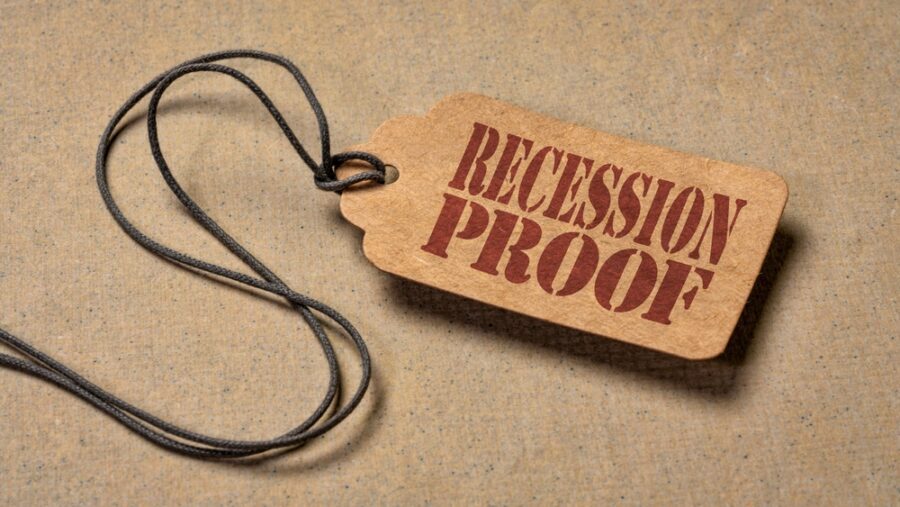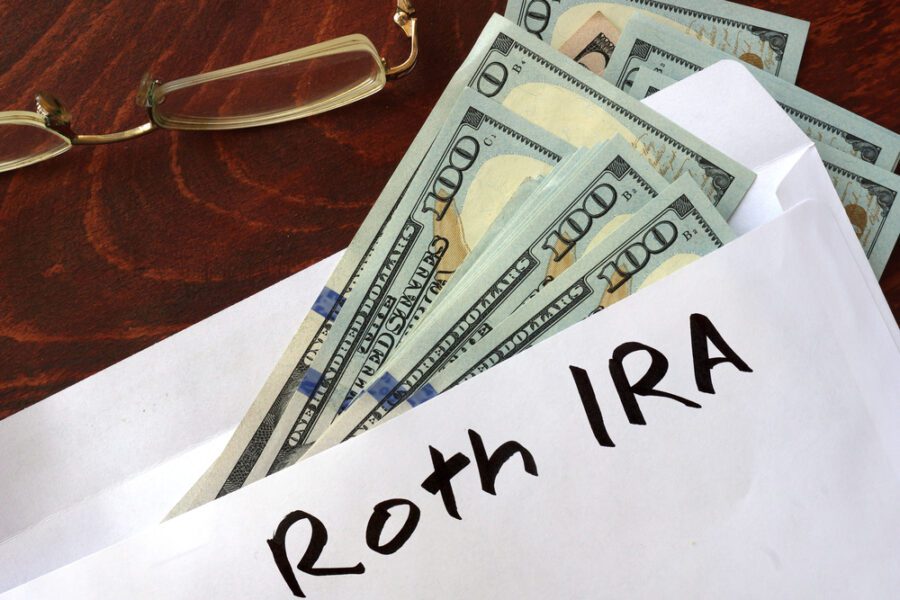
Let’s Recession-Proof Your Retirement!
The US is bracing for a significant economic downturn as it grapples with everything that has been happening in recent years. Americans have lost over $2.7 trillion from their defined contribution plans and IRAs due to the 2008 recession, the Urban Institute reported.
Recessions are historically double-dip, making this situation especially problematic for anyone nearing retirement age. Leading economists warn that US consumer demand will struggle to recover despite businesses reopening in various phases.
The odds of a relapse, not just from the virus but the economy itself, the so-called dreaded double-dip, are genuine. Specialists had predicted that the coronavirus outbreak would eclipse the SARS impact in 2003 and devastate the global economy, leading to a recession.
This behavioral concession on the demand side of the US economy will continue to create many problems for businesses, business hirings, and potential corporate bankruptcies.
Fortunately, we’ve found a few ways you can recession-proof your retirement to still enjoy your golden years despite a downswing in the market.
…Keep reading to get 9 useful tips!

You Can Earn 60 Times More Interest On Your Savings!
The average interest rate on a savings account in our country is 0.06%. That’s pretty low when we think about it. Don’t wait for a recession to hit you. You might consider moving your money to CurrentHowever. You can earn up to 4%, the highest savings rate in the US.
It would add up to more than 60 times the amount you might be getting now.
You can earn that rate with a deposit of up to $ 2,000 for a free account and $ 6,000 for a premium account. FDIC member banks provide current banking services, so your account is completely insured.
And with Current’s basic account being free, there are also no hidden fees or minimum balances. You can even use your Rewards Debit Card to get free withdrawals at over 40,000 ATMs around the country.

Keep Contributing To Your Retirement Accounts
As you near your retirement and markets are down, you might be tempted to stop contributing to your 401(k) or IRA. You might even think about selling off some of the stocks in your portfolio. Don’t act so impulsively.
You can typically maintain your 401(k) with your former employer or roll it over if you have an individual retirement account. IRAs preserve the tax benefits of your 401(k) plan and enable more investment options.
T. Rowe Price found that more than 83% of 401(k) participants want to keep their savings in their employer plan upon retirement. Of the 83% of respondents, 53% said they would stay in their employer plan if it offered solutions to help generate income.
The other 30% said they would remain in the plan regardless of whether a retirement income solution was available.
This is the time to be buying when the market is very low to be in an excellent position to grow that portfolio when the recession wanes, said Brian Burke, founder of SellYourMac.com.

Fund Your Retirement With Your Biggest Assets
Not everyone who reaches their 60s has a comfortable retirement package. Many people couldn’t save as much as they wanted between their mortgages and some other financial responsibilities. A recession doesn’t help either.
But homeowners DO have secret weapons. Home equity! American Advisors Group can help you take advantage of that equity… safely, of course!
Opting for reverse mortgages, you can enjoy retirement benefits such as travel, home remodeling, and even spoiling your grandchildren.
It’s effortless. Here’s how it works: AAG refinances your location or repays your existing mortgage and gives you a portion of your earnings. You can choose to pay in one big sum, schedule a recurring payment, or use a credit line.
And here are the facts: You’ll still be holding the title of your home. As long as you pay, it’s yours until your death, or you decide to move.
ConsumersAdvocate.org has given the company a 5-star rating, AAG has given it a 4.46-star rating on the Better Business Bureau, and Trustpilot a 4.5-star rating.

Protect Yourself Against A Recession With Gold And Silver
A wise investment is not enough. Inflation can hurt even the smartest choice you make. You should diversify to protect your retirement from a recession. Gold has been the standard of wealth for centuries, and that hasn’t changed.
Grow your wealth through this historically valuable asset. And we’re not just talking about your jewelry here. Gold is an integral part of modern electronics. Do you think anyone will give up on their smartphone anytime soon?
Gold does not fall under government currency rules. You can also buy gold sticks and coins or invest in a “gold IRA” that strictly follows the Internal Revenue Service regulations. The Oxford Gold Group also sells silver, including silver IRA, platinum, and palladium.
The Oxford Gold Group has a 4.9-star rating on Trustpilot, with 96% of reviewers calling the company “excellent” and 4% calling it “great.” It has an AA rating from the Business Consumer Alliance and an A-plus rating from the Better Business Bureau.

Come Up With A Plan For Your Retirement Income
Planning for retirement means making sure that you have income streams once you stop working your full-time job. Focus on your income plan just as much, if not more, than your accumulation plan.
Far too many people plan for retirement as if it’s a single destination at a specific time and thus only plan to grow their assets as high as possible.
While this IS very important, you should also build a plan to monetize that asset and provide a suitable income stream for three decades or even more. What if this recession and market volatility becomes the new normal?
What if low-interest rates means bringing on inflation? What if life in retirement for you and your spouse lasts well over three decades? These are all things you should think about when building your retirement income plan.

Protect Your Family’s Health Through A Recession
If you think you can’t get long-term care insurance after you’re 30, think again. Golden care Write LTC has coverage for most people. Unless you happen to live in four inactive states: Alaska, Florida, Hawaii, and Washington.
But does Medicare handle it all? No, and this is a standard example. After an accident or some type of illness, the hospital can release you to a nursing home or recovery center until you are better. But, Medicare doesn’t cover this type of care.
And if you pay for it out of pocket, your retirement savings can take a huge hit. A recession can mean near or complete depletion of the eggs left in your nest. By getting Golden Care long-term care insurance, you can obtain the help in case of any illness or incompetence.
Most long-term care includes: bathing, changing clothes, cooking, light housework, shopping, etc. Without long-term care insurance, your choices wouldn’t be that great.

Don’t Rely On Market Conditions
Build a realistic budget in retirement that includes knowing which income you will use for which expenses. Try to separate wants (travel, entertainment, etc.) from needs (housing expenses, food, taxes, insurance, etc.).
You should link expenses to guaranteed income sources for the needs column, like Social Security, income annuities, and pensions.
This way, you can take a lot of pressure off the income you need from investment withdrawals because adjustments can be made if market conditions allow it. You should take that trip around the world off of an IRA withdrawal following an excellent market year.
You might even practice living off your anticipated retirement budget to guarantee that you have budgeted correctly.
Since you usually spend less during retirement than in your income-producing years, doing so can also help you put aside more money for retirement because you won’t be spending money on unnecessary expenses, and a recession won’t affect you as much!

Don’t let broken appliances break the bank
Home repairs aren’t exactly cheap. Whether your roof leaks or your appliances begin to break, the house you love can quickly become a nightmare, costing hundreds or even thousands of dollars to fix. But don’t worry.
Fortunately, you can protect yourself from substantial repair costs with a housing guarantee company called America’s First Choice Home Club. You can save on anything from home appliances to electricity, plumbing, heating, and cooling systems.
The added bonus is that their in-house service team is available 24/7 to provide a hassle-free repair process in the event of any problems. You can even choose your own technician, or if you aren’t thinking of anyone, they can send you one from their national network.
Throughout the US, homeowners choose AFC Home Clubs for the savings, services, and peace of mind they can offer. Recession or not, this is a good plan to keep in mind.

Cut Down On Some Fixed Expenses
Obviously, there will be some expenses you won’t be able to or unwilling to eliminate. But for these expenses, you can look for ways to save on some costs. You’re likely overpaying for your cell phone bill and some other services such as cable TV and internet.
Try shopping around and seeing if you could save by switching to another provider. In the meantime, call your current service providers and see if there are any ways for them to lower your bill, either temporarily, permanently, or maybe even both.
Considering the recession, most providers won’t want to lose your business. The lower your cost of living is, the more of a cushion you’ll have for the unexpected events that come up in life. This means a good plan for your budget now and for retirement.
If you follow some of these tips and cut down on some costs, you’re sure to have an easier life as a retiree, and a nationwide recession won’t hit you as hard! And for even more great tips, read: New Retiree: 8 Helpful Tips To Adjusting









